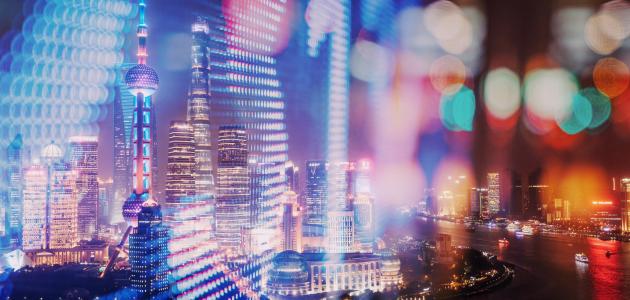The adoption of the Internet by the Chinese government in the 1990s was part of China’s ambitious economic reform and opening up. Introducing information and communication technology was seen as a pathway toward innovation, attraction of foreign direct investment, and global competitiveness. In the past two decades, China has significantly reaped the benefits of the Internet. It is now at the forefront of digital revolution. China is moving quickly toward a cashless economy and leads the world in digital commerce, accounting for 40 percent of global e-commerce transactions.1 The number of China’s Internet users has surpassed 730 million, with more than half of the Chinese population now active online. From commerce, to governance, to journalism, to routine communication, much of Chinese life is increasingly virtual.
While Internet expansion is integral to China’s economic project, it also poses new challenges for the Chinese Communist Party. To the disappointment of many Western analysts, social media did not translate into democratization in China, but it did create an unprecedented space for public expression. Since the early 2000s, China has been marred by “public opinion incidents”—Internet-driven, contentious events that capture national public attention. They include public allegations against official corruption, expressions of discontent about polluting factories and social inequality, and many other thorny issues. Discussions begin online, travel into mainstream media, and at times transform into actual protests, awakening authorities to the powerful role that the Internet can play in transmitting public discontent. At the same time, the traditional media that used to be the key weapon of the party in guiding public opinion are atrophying. Mirroring the journalism crisis in the West, in the last three years alone, China’s print media have lost three-quarters of their advertising revenue to competition from big-data news aggregators and individual social media platforms.2 This financial loss accompanied declining public trust in mainstream media, signaling the weakening of China’s propaganda apparatus.3
The Chinese state now faces at once a more vocal and a more diverse public opinion, less amenable to traditional propaganda. In response, Chinese authorities at the highest levels called for recapturing the Internet. At the very start of his leadership, Xi Jinping named the “battle” for public opinion one of the core objectives of the party.4 In recent years, Chinese authorities have implemented a number of upgrades in their use of the Internet. These include new strategies in e-governance and online persuasion, as well as innovations in control of Internet use, including new forms of censorship and surveillance. Understanding these strategies is important not only for our engagement with China but also for thinking about global Internet policy as China emerges as a potential model for other, illiberal, countries to follow when it comes to Internet governance.
The Chinese State Online: From Co-Optation to Containment
Chinese Internet as a Tool for Governance
Chinese authorities use the Internet to modernize governance, sharpen persuasion, and control public opinion. While censorship tends to dominate much of Western reporting, the Chinese government also deploys the Internet for some democratic functions, such as soliciting public feedback and responding to public concerns. In addition to polling and town hall meetings, Chinese officials are now encouraged to actively study, solicit, and engage with public opinion online in an act some refer to as “authoritarian deliberation.”5
Much of this online public deliberation takes place on official microblogs or official Weibo (the Chinese version of Twitter). The number of Chinese official Weibo accounts now exceeds three hundred thousand and the number of government WeChat accounts amounts to over seventeen thousand.6 These microblogs serve multiple functions, including news conferences, online polling, and other feedback channels. Citizens are invited to share concerns on a wide range of issues, from forced demolitions to unpleasant local dining experiences.
The accounts are run by diverse official units, including central-level state and party bureaus, courts, public security agencies, propaganda offices, and local officials. The public security sector dominates in official Weibo accounts.7 This isn’t surprising, considering stability maintenance is at the heart of China’s legitimacy battle. Most feedback gathering happens at the local level, as local issues are less sensitive. In addition to official microblogs, Chinese mayors, for instance, have set up the so-called “mayors’ mailboxes,” platforms specifically designed for residents to share complaints and concerns with city officials. These mailboxes are popular with citizens for launching sharp complaints, especially in the area of environmental protection.8 The public itself can appraise official digital responsiveness via surveys administered by China’s official media outlets. People’s Daily, for instance, has a weekly online program that ranks the effectiveness of official Weibo in solving problems, selecting the “timeliest” and the “warmest” reply of the week.
Other than corresponding with the public via individual official accounts, Chinese authorities closely study popular discussions on China’s major social media platforms—like Weibo, Tianya, and WeChat—to spot sensitive topics, potential societal conflicts, and issues in need of urgent addressing. Many officials are specifically hired for the function of online public opinion monitoring to report worrisome trends to their colleagues and superiors, who can then try to preempt crises or avert public opinion incidents. According to some analysts, the number of public opinion analysts now exceeds two million and there are over 800 businesses specifically dedicated to helping governments monitor public discussions online.9
Similar to democratic systems, the effectiveness of China’s e-governance efforts is mixed, featuring selective responsiveness, with many issues (especially at the central level) left unaddressed. Considering the controlled nature of the Chinese Internet, the extent to which public deliberation is truly encouraged remains questionable. The more sensitive comments are quickly deleted, preempting wider public mobilization around these issues. However, the projection of official responsiveness or the “consultative” nature of Chinese governance is in itself significant as a legitimacy-boosting attempt by the Chinese state.
Chinese State Revamping Digital Persuasion
Responsiveness and creation of deliberative spaces online is accompanied by intensified official efforts at digital persuasion. The Chinese government is working on revitalizing official social media channels and their messaging techniques. In addition to expanding official microblogs, Chinese authorities have propelled media convergence or integration of traditional media with online platforms. This includes investing in brand new digital news outlets and online remaking of traditional party mouthpieces. The Chinese state invested millions into new media journalistic initiatives at the local level, with Shanghai alone pouring 560 million yuan into the digital propaganda sector. Unlike Western journalism, heavily constrained by limited funding, Chinese journalism is supported by the state with immense investments aimed at creating slick, credible, state-owned outlets that would fulfill the propaganda mission online. Some of these efforts are paying off, with fresh news outlets, like Shanghai-based Pengpai, gaining popularity among urban middle-class readers. In addition, the authorities hired teams of young people to operate official social media accounts to make them more attractive to youth by publishing human interest stories, entertaining videos, and even romantic discussions that would typically appear on blogs or in commercialized newspapers. To the surprise of many observers, in contrast to their print counterparts, these social media accounts have become highly influential with the public. The social media accounts of official mouthpieces like People’s Daily and CCTV ranked as number one and number two, respectively, in 2016, outcompeting many of their commercial counterparts.10
The propaganda practices of Chinese authorities are also becoming more nuanced in the digital age. Unlike the stiff, official language of print newspapers, social media channels fuse political reports with entertainment and timely service announcements. In channeling official information to the public, for instance, official online accounts invite users to read through all major speeches by President Xi, track his international and domestic visits on a digital map, and even post questions to political delegates at the National Party Congress. Xi himself is portrayed as more personable and engaging than previous top leaders. Images of him traveling overseas, greeting common people, and solving problems flood the Internet.
The official platforms also lure users via service provisions by publicizing timely advice columns on relevant topics, such as tips on getting kids through the grueling college examinations, obtaining train tickets for major holidays, launching a career in civil service, studying abroad, maintaining healthy food habits, and performing emergency health procedures, among other topics. The advisory messages are often adjusted to specific events, such as disasters, crises, and holidays. In amplifying persuasion, Chinese officials take advantage of the interactive nature of the Internet by inviting netizens to contribute creative content to these platforms, such as happy family photos for “harmonious family day,” as well as to consume and repost information in exchange for a chance to win prizes (e.g., Kindles and Apple vouchers). Similar to public relations companies and entertainment platforms, Chinese official news accounts are deploying gaming techniques, playfulness, and interactivity to boost their clicks, views, and social media rankings.
In addition to remolding the existing media channels in the Internet age, Chinese authorities deploy thousands of paid online commentators and cultivate patriotic bloggers to counteract negative commentaries with persuasive positive messages. Every year, the Chinese government posts about 448 million fabricated posts with the help of these commentators.11 The paid commentators, known as the 50 Cent Army, operate in a decentralized fashion. Unlike Russian trolls housed within a secretive office compound, China’s commentators are hired by multiple agencies and largely work from their smartphones, tracking popular discussions on social media, adding pro-regime content, and at times attacking critical voices.12 Many of them do this part-time as a source of extra income or as a way of establishing good career connections within the party. Some commentators also work on a voluntary basis out of nationalistic sentiment. The party has singled out and rewarded the most prominent of these grassroots patriots with televised meetings with Xi. The official media constantly glorify the spirit of online patriotism, equating it with good citizenship. Much of the digital patriotism promoted by the state is coming from overseas, with Chinese exchange students (many based in the United States) sharing pro-regime posts, patriotic photos with the national flag, and other nationalistic commentaries. Surprisingly, Chinese exchange students seem to become more nationalistic during their overseas stays, bolstering pro-regime content online, which gets reposted and shared by China’s official news platforms and social media platforms.
Overall, Chinese authorities are taking e-governance and digital persuasion very seriously, in some ways mirroring and learning form their Western counterparts. Like Western governments, Chinese authorities are adapting the interactive features of the Internet in their engagement with the public, using digital platforms to gauge and respond to public sentiments and to project a positive image of the government via playful, creative messaging techniques that mask official propaganda. The paid commentators are also not unique to China or to authoritarian systems. While the scale of this phenomenon in China is distinct, many other governments, including the United Kingdom and Ukraine, use troll armies for political persuasion.13 The co-optation of public opinion through social media, however, is always balanced by containment or restrictive measures on Internet use, which dramatically differentiate the Chinese Internet from its Western counterparts.
The Stick: Refining Censorship and Surveillance
Since the introduction of the Internet, the Chinese state has continued to refine and expand its censorship apparatus. Xi has transformed Internet regulation on institutional and tactical levels. Xi created (and chairs) a new Central Leading Group for Cybersecurity and Informatization in charge of defining and disseminating China’s cyberstrategy. Xi also replaced the State Information Office with the Cyberspace Administration of China—a new state institution in charge of regulating Internet content which directly answers to the president. The emergence of these important, new institutions symbolizes centralization of Internet management, in contrast to more disparate and decentralized Internet regulation in the previous two decades.
The tactics of regulating Internet content have also shifted into a more legalistic and uncompromising direction. Since Xi came to power, Chinese authorities have issued a number of new laws restricting Internet usage. Last year alone, new regulations reined in the use of virtual private networks (VPNs) that helped bypass China’s content-filtering system or the Great Firewall. Chinese authorities have further instituted real-name registration on social media platforms, justified by the 2015 Counterterrorism Law, and issued a list of vague categories of forbidden topics to Internet providers, including any discussion that compromises national security or spreads rumors and obscenity.14 The party-state further encumbered network operators with immense regulatory responsibility under the new Cybersecurity Law, making them directly responsible for monitoring harmful content and storing data in China.
In addition to legal prohibitions, the authorities have launched far-reaching campaigns to weed out “negative elements” from the Internet. The accounts of many online celebrities or public opinion leaders otherwise known as “the big Vs” have been shut down, with some bloggers detained and imprisoned. At the same time, content filtering has intensified, with content featuring even mild political sensitivity being quickly deleted or directed to be deleted via the Internet providers, online news editors, and other gatekeepers. Chinese journalists and editors, for instance, now receive more detailed and frequent censorship instructions, asking them to take out unfavorable content, but also to add positive content, to rephrase and alter their texts. The work schedule of online editors has expanded from an eight-hour day to a twenty-four-hour work cycle.
Despite this intensification of censorship, Internet control remains intentionally partial, as total control would impede official efforts at revitalizing e-governance and persuasion. What we continue to observe in China is an incomplete and sporadic censorship. The authorities are most sensitive to topics that directly challenge the legitimacy of the Central Communist Party and discussions that can spark public mobilization in the form of offline protests or social movements.15 Discussions about secessionist movements in Xinjiang, Tibet, Hong Kong, and Taiwan, for instance, continue to be completely off-limits, with many Chinese citizens unaware of the umbrella movement in neighboring Hong Kong or the growth of detention centers in Xinjiang. Any posts commemorating the Tiananmen Square protests are filtered out immediately, as are sarcastic or critical commentaries about top leaders. When it comes to issues in the so-called gray zone of political sensitivity, including discussions of local corruption, environmental degradation, food safety, sexual harassment, and workers’ compensation, censorship takes more of a reactive and sporadic nature. Discussions that are devolving into public opinion incidents are more likely to be censored, whereas more dispersed complaints or social media posts are left untouched for longer. Censorship of contentious online discussions, moreover, is often combined with public responsiveness by authorities in the form of policy proclamations widely publicized on social media. As noted earlier, authorities strive toward manufacturing responsiveness, pairing censorship with co-optation. A famous online documentary of China’s pollution crisis, produced by investigative journalist Chai Jing, for instance, was censored after it hit over a million views. At the same time, the environment minister complimented the documentary and a number of high-level statements and policies about environmental protection were issued following the online public outcry.16 Censorship, therefore, while extensive and unpredictable, still succumbs to some patterns and continues to be applied selectively despite the growing institutionalized and legal regulation of the Internet.
In addition to censoring online content, Chinese authorities partake in extensive collection of citizen data in what is likely to represent one of the most sophisticated state surveillance experiments in human history. While data monitoring and collection are publicly attributed to official efforts at improving governance, they also fuel state control over citizens. First, Chinese authorities collaborate with major Internet platforms, like Tencent, to gain access to personal data from popular social media apps such as WeChat, which now boasts over 900 million users. Internet providers are required to store data on China’s domestic platforms and to hand it over to authorities at their request. What authorities do with this data and how thoroughly they examine it is unclear. But the access alone means that they can target individuals arbitrarily, especially those with sensitive backgrounds, like members of minority groups.
Moreover, surveillance is becoming institutionalized through China’s plan to roll out a social credit system nationally by 2020. Eight tech companies are already running pilot credit-ranking operations to test algorithms and systems for a national project.17 The existing ranking operations, like Sesame Credit, carried out by Alibaba, display worrisome political undertones. For instance, in addition to more common calculations of financial transactions, Sesame Credit includes a category on interpersonal relationships where you can rank the behavior of members of your social circle, incentivizing self-censorship. Spreading positive energy counts as a credit booster. It is evident that by implementing a national social ranking system, the party-state strives to craft a perfect citizen—the kind who exhibits civilized, law-abiding, politically correct behavior. The social credit system is likely to encourage homogeneity in human behavior, isolating outsiders into the twilight zone of insignificance. Last year alone, the Supreme People’s Court banned over six million citizens from taking flights due to their low credit ratings. Such uncompromising punishments will intensify as the system expands. In the name of civility and the rule of law, ironically, Chinese authorities appear to retreat further into arbitrary authoritarian rule.
At the same time, as with all official activities online, the effectiveness of digital surveillance is only partial. The practical implementation of the national social credit system is likely to meet some hurdles as it unfolds. For instance, it remains unclear how the Chinese state will process the immense volume of information it gathers from its citizens and deal with likely technical errors, as well as public crises that can emerge from sudden arbitrary infringements on freedom of movement and access to health care and education. The area of social credit is to be watched closely as the citizen-ranking system unfolds, as it manifests both the opportunities and limitations of technocratic governance that are relevant to democracies as much as to authoritarian systems.
Chinese Citizens: Inhabiting the Censorship Spaces
Like Internet users in Western democracies, the majority of Chinese netizens tend to use the Internet for apolitical activities, such as entertainment and consumption. Peeking into smartphone screens in major cities, you will spot popular TV series, shopping sites, and WeChat discussions. With the advancement of the WeChat platform that encompasses everything from online payments to work and family chats, Chinese citizens are increasingly embedded into and dependent on the Internet for their routine tasks and activities. Phone calls have significantly declined, as Chinese citizens communicate via the instantaneous WeChat platform. Shopping malls are now places to wander, as purchases are largely done online. China’s e-commerce trade volume increased by 27 percent in 2017 from the previous year, reaching the volume of $2.03 trillion in the first half of 2017 alone.18 The dominant players in e-commerce industry, including Alibaba and Jingdong, are using drone technology to transport goods across China, including to remote villages.
Most citizens rarely carry around cash or even credit cards. Even farmers and beggars now use WeChat to pay for their financial transactions. This large-scale digitalization of society, fueling the data mining and surveillance described earlier, is largely embraced by Chinese citizens. While Western commentators publicize privacy alerts, Chinese Internet users rarely invoke concerns about privacy and tend to associate techno-governance with efficiency and personal comfort. Even the social credit score system described as “Orwellian” by the West has thus far encountered little criticism or pushback from Chinese consumers, with thousands signing up voluntarily for pilot programs to accrue financial benefits.
At the same time, the spread of the Internet procured societal mobilization and public expression impossible in the pre-Internet age. Despite the highly censored and commercialized character of the digital space, Chinese citizens continue to use it for political expression and activism, partaking in what many refer to as the Chinese public sphere. It manifests itself in more overt forms of societal mobilization, as well as in more subtle critical expressions and participation via the use of satire, entertainment platforms, and engagement with rumors.
Digital Mobilization: Citizen Power
As for more explicit mobilization, the rise of the Internet has vocalized and connected civil society actors to collaborate on campaigns and to encourage public support for their causes. First, many reputable journalists, lawyers, and intellectuals, who used to only carry a modest following in their respective social circles, evolved into social media celebrities or public figures accessible to the broader society. Some Chinese professors and journalists enjoy millions of followers, produce their own talk show platforms, and spread personal opinion pieces via WeChat circles that they would be unable to publish in mainstream news channels or express in classrooms. Some of these online celebrities take advantage of their following to advocate for specific societal causes. A former investigative journalist turned online activist, Deng Fei, for instance, used the Internet to raise money for a village school feeding campaign that ended up attracting so much public attention that the government itself later stepped up and provided a large sum of funds to complete the project.19
Moreover, civil society groups otherwise working in isolation from one another started collaborating online. Journalists unable to publish a sensitive story in their locale spill the information to their colleagues at a larger outlet via social media. Journalists and lawyers, in particular, have built successful alliances on the Internet in advocating for shared causes, such as environmental protection, public construction safety standards, and government transparency. They communicate through WeChat circles, where they share information, publicize each other’s causes, and come up with strategies for engaging public opinion and the government on these issues.
Online civil society mobilization also frequently originates from the bottom up. A discussion of a contentious topic can spark on popular social media platforms, drawing attention from civil society actors, who further report on and galvanize the public. Many public opinion incidents introduced at the beginning of this paper follow this pattern. An otherwise local incident turns into a hot discussion topic on social media, drawing attention from public opinion leaders who analyze the incident, publish investigative reports, and offer legal support, putting pressure on authorities to respond. Starting in the late 2000s, most news events have been “broken” on the Internet prior to being reported by mainstream media. In many cases, social media reporting contradicts official accounts of sensitive events, preventing cover-ups. For instance, in the case of the 2011 Wenzhou train crash that took the lives of thirty-eight citizens, mostly of middle-class background, online outcry over fabricated official accounts of the disaster led to the sacking of senior officials at the Railway Ministry.20 More recently, the Tianjin chemical explosion was widely documented by journalists from online news platforms, like Tencent and Sohu, who broke official regulations on online reporting, rushed to the site, and exposed the disaster to the online public and government officials.
Indirect Political Critique: Politicized Entertainment
Chinese citizens also express political sentiments indirectly through satire, entertainment platforms, and rumors. The emergence and popularization of a unique digital culture of online spoofs (e gao) or political parodies highlight the important linkages between humor and politics in China’s digital expression. Chinese netizens take advantage of the Internet to creatively combine language with images, mixing different media genres and platforms, to come up with catchy memes about hot issues in Chinese politics. Poking fun at the key political slogan under Hu Jintao, the “harmonious society,” for instance, social media users posted an image of a river crab, which sounds the same as the word harmony in Chinese, but is spelled with different characters. River crab came to symbolize censorship, with social media users frequently referring to deleted content as “being harmonized.” The image went viral, with some reposts featuring expensive watches hanging on the crab, symbolizing widespread corruption of Chinese officials. A recent popular spoof is the public reaction to Xi’s elimination of term limits, with netizens reposting an image of Winnie the Pooh as an emperor and of Winnie hugging a jar of honey, headlined “Find the Thing You Love and Stick with It.” Chinese citizens can’t directly object to these constitutional changes. But they can express momentary dissatisfaction through these playful cartoons and memes, which are subsequently deleted by the censors. Playful expression is also used to commemorate sensitive events, like the Tiananmen Square massacre. On one recent anniversary, social media users substituted large yellow rubber ducks for tanks in the famous photograph of a sole protester facing the tanks in Tiananmen Square. The image went viral. Eventually, the authorities completely banned the search for yellow ducks online, but it was a tiny societal victory over defining public memory online.
Many of these digital satirical campaigns arise and spread spontaneously in reaction to specific events and go viral via platforms like Weibo and WeChat until they get shut down by authorities. In addition to these spontaneous movements, we are also seeing a rise in satirist personalities or popular comedians online—entertainers who make money from humorous discussions of important societal issues. A well-known example of this is the Papi Jiang show—a female comedian based in Shanghai who started her popular show with a simple phone camera in her living room, speaking at a very fast rate about social issues, from gender inequality to generational conflicts. Her first ad just sold for $3.4 million. She has evolved into one of China’s most popular social media personalities.21 Satirists like Papi Jiang don’t touch politics directly, but engage with societal frictions and events that indirectly speak to China’s controlled political system.
Other than satire, Chinese citizens frequently partake in creating and spreading online rumors or unverified information. The theme of “fake news” has only emerged in the Western world in the past two years. But in China, the tensions around misinformation have become apparent since the popularization of major social media platforms, like Weibo, in the mid-2000s. Every day, rumors permeate the Chinese Internet on a wide range of topics such as food safety and official corruption, as well as speculations about ways to get rich, fall in love, or buy an apartment in an expensive city. While seemingly innocent, rumors can be political. First, political topics tend to be most prone to rumor creation. During the Bo Xilai scandal, social media were flooded with commentaries speculating on his removal from the party. From high-level scandals to low-grade corruption allegations, political topics unsurprisingly invite public speculation. Moreover, rumors, even if not directly political, challenge the official propaganda accounts by creating alternative narratives and at times even fake scandals that officials have to address under pressure. Many fake food spoofs have emerged recently, with entire businesses destroyed by unverified accounts of fake food ingredients. The political nature of rumors is also evident in the recent official campaign against online rumors, including a crackdown on many social media accounts and even detentions of social media users accused of spreading misinformation.22 Because of the subtle nature of gossip in contrast to direct provocations, however, rumors are difficult to remove, much less preempt. The so-called fake news phenomenon is unlikely to fade out in China anytime soon.
Nationalistic Expression: Critical in the Other Direction
The analysis of Chinese citizens’ use of the Internet would be incomplete without an acknowledgment and brief discussion of patriotic and nationalistic expression. As noted earlier, Chinese authorities employ and reward pro-regime commentators who spread patriotic, positive content and counteract negative information online. Though patriotism is strongly encouraged, nationalistic communication has emerged as a double-edged sword for the regime.
In recent years we have seen radical nationalistic waves on the Chinese Internet in response to sensitive international events, at times translating into violent offline protests, hacktivist campaigns, and mounting diplomatic pressures on the party-state to take uncompromising diplomatic positions. In 2012, fueled by online discussions, large anti-Japanese protests erupted across China against Japan’s claims over the Diaoyu Islands. In 2016, the election of an anti-China leader in Taiwan provoked China’s cybernationalists to “occupy” Taiwanese websites with pro-mainland content. At times, digital nationalism can devolve into hacking attacks. Last year, for instance, Chinese hackers attacked the website of a South Korean conglomerate at odds with Beijing.23 According to some estimates, there are now 250 patriotic hacker organizations in China.24 Little is known about the members of these groups and to what extent they are supported by the Chinese government. Studies of online nationalist campaigns, however, demonstrate that many of these emerge from the bottom up and that Chinese authorities often exhibit a mixed attitude toward these movements, complimenting patriotism while censoring more radical nationalism.25 In the case of the ongoing trade war with the United States, for instance, Chinese authorities try to guide societal nationalism to align with its foreign policy, with its latest directives aiming to quell anti-Trump and anti-American sentiments. Considering that the party’s legitimacy draws on establishing a formidable international image of China, however, Chinese authorities cannot and would not want to obstruct digital nationalism, nor would they want to create dangerous nationalistic enemies unsatisfied with the pace of Chinese reforms. Cybernationalism, therefore, presents a dangerous, unpredictable force that the Chinese state will have to handle carefully in the years to come, arguably even more so than with liberal expression.
Conclusions and Implications
An analysis of digital life in China presents the Chinese Internet as a highly dynamic and diverse space, especially when it comes to political expression. Far from being a black box of complete state domination, the Chinese web is negotiated between adaptive and innovative officials and citizens. After unleashing the Internet as a force for modernization and internationalization of Chinese economy and society, Chinese authorities have been forced to adapt to the more destabilizing effects of social media, including threats to the party’s monopoly on information and social control. In response, the Chinese state has deployed a complex toolkit of control and co-optation. In particular, under President Xi, we are seeing a regime that treats Internet policy as one of its top priorities in governance, creating new institutions to manage the Internet, passing new, restrictive regulations, co-opting more actors into the wider web of self-censorship, coercing rebels into subordination, and crafting “perfect” citizens via unprecedented data mining operations with the help of Internet operators. At the same time, Chinese authorities increasingly use the Internet as a platform for innovative persuasion by creating online, institutionalized public feedback channels, reinventing the digital news ecosystem, experimenting with creative forms of political expression that use interactive features to lure citizens, and delegating patriotic digital messaging to young citizens in exchange for monetary or symbolic compensation.
While the Chinese Internet has arguably become more politicized and more restrictive in recent years, Chinese netizens continue to take advantage of the web to upgrade their daily lives as well as to express societal and political preferences. As in the West, most Chinese Internet users use the Internet for practical tasks and apolitical communication. In that sense, the official modernization project appears to be working, as most citizens buy into the vision of futuristic techno-governance as superior, dismissing concerns about privacy and surveillance in exchange for speed, efficiency, and instant monetary rewards. China, perhaps, is the best current manifestation of a state-sanctioned digital utopia, where citizens proudly—and for the most part uncritically—embrace technological advancement at all costs.
At the same time, the Chinese web undoubtedly carries important subversive elements, with the emergence of China’s public sphere coinciding with the spread of the Internet. Since the early 2000s, we have seen public opinion-makers, including journalists, lawyers, and nongovernmental organization activists, collaborating in shared campaigns online as well as responding to and galvanizing online public opinion movements in vital policy areas, like environmental reform. The Internet created previously nonexistent linkages across activist communities, as well as between activists and the wider public and between the public and officials. Beyond explicit mobilization, Chinese citizens partake in political discussions through satire, entertainment, and gossip—playful expressions that touch upon key sociopolitical issues indirectly. It is debatable to what extent portraying the party as a crab or planting images of yellow ducks to replace tanks provokes any meaningful policy change, but these acts are significant in that they demonstrate to the party public cynicism and dissatisfaction with official propaganda and ideology. In a highly censored system, these symbolic acts allow Chinese citizens to experience some agency and a sense of community in a way that is less threatening than direct political mobilization. This agency, moreover, is not always aimed at pushing for a more liberal and democratic party-state. Some of it is also directed at more nationalistic ambitions, squeezing the state into a bolder, less compromising position vis-à-vis its neighbors and on the global stage more broadly. These diverse online expressions—from public sphere mobilization to playful cynicism to nationalistic campaigns—in turn continue to challenge the party-state to craft an ever more sophisticated cocktail of censorship, regulation, and persuasion.
Is the Chinese Internet Unique? The US-China Convergence
Distinguished Hoover Fellow George Schultz has argued that the challenge of the information age is “how to govern over diversity.”26 He referred to the unprecedented diversity of communication flows that governments cannot contain, but have to learn how to manage effectively. While China is often categorized as uniquely authoritarian and technocratic when it comes to Internet governance, I agree with Senior Fellow Niall Ferguson’s statement that there are more convergences between the two systems than we dare to acknowledge.27 In particular, I see convergence in challenges, management strategies, and opportunities in the digital sphere. Both China and the United States face unprecedented digital revolutions, which produced diversification of information networks and contestation of the very meaning of “truth.” In both countries, trust in traditional media and political institutions more broadly is declining. “Fake news” and rumors have arisen as a dominant force in the information echo system, putting pressure on news organizations and governments to adjust their communication strategies in attempts to instill some order and civility into public discussions and reinstate the notion of “truth.”
In both contexts, this campaign for order has been heavily politicized, with the term “fake news” being thrown around conveniently to attack perceived enemies. As part of the anti-rumors campaign, for instance, the Chinese authorities have jailed many intellectuals and liberal voices deemed dangerous to the regime. President Trump, in the meantime, continues to attach the label of “fake news” to liberal media whenever they criticize him or publish “unfair” reports. This politicization of truth only further inflames political polarization, lowers societal trust, and contributes to more rumor-mongering. In both countries, digital tech giants are being increasingly charged with regulating information flows or censoring inappropriate content. China, of course, practices this at a larger scale and technological sophistication than the United States, but debates over whether and how tech giants like Facebook are going to contain the spread of harmful information are only beginning. This unlikely convergence between the most powerful democracy and the most powerful authoritarian state in the realm of Internet governance is worrisome. It demonstrates how the Internet can play into the authoritarian and populist elements in any society, and how the diversity of information flows that it produces presents an insurmountable challenge to authoritarian and democratic governments alike. We are far from effectively governing over diversity, returning to Schultz’s astute premonition.
In placing China and the United States alongside each other in the analysis of Internet governance, however, we also see some elements of positive or democratic convergence between the two giants, with “diversity” of information translating into some meaningful mobilization campaigns for social justice. From the #MeToo movement in the United States to LGBT rights activism in China, the Internet continues to afford unprecedented opportunities for cross-sector connectivity. Some of these movements travel across borders, with the #MeToo campaign recently sparking feminist movements in China and with journalists and environmental activists building transnational networks with their counterparts in America and other Western countries. Of course, such campaigns tend to be more restricted in China, but they are still significant in pressuring authorities to acknowledge and react to societal grievances. Social media have not transformed China into a democracy, but they have arguably contributed to a more politically active society and a more responsive, albeit still authoritarian, state.
Points of Divergence: Cyber Sovereignty as a Troubling Alternative
At the same time, China and the United States radically diverge and compete when it comes to the models of Internet governance they promote globally. The US policy of global Internet freedom and openness is increasingly at odds with China’s cybersovereignty policy. China aggressively advocates for governments as the key actors in charge of managing the Internet. China promotes a multinational view of global Internet governance, with a coalition of powerful nations enabled to define the boundaries of the global Internet. This strongly contrasts with the US-advocated multistakeholder model, whereby the Internet agenda is shaped by a fusion of nongovernmental actors.
China’s cybersovereignty stance poses a number of serious challenges for the United States and for the world. First, China is effectively forcing US Internet giants to comply with Chinese Internet vision if they want to operate in China. Apple CEO Tim Cook’s attendance and praise of China at the Wuzhen Internet Forum is one example of the limits the companies are willing to go to in exchange for accessing the China market. Google’s recent controversial announcement about a possible reentry into China in exchange for creating a censored search engine is another. In the years to come, we are likely to see more yielding to China by the US techno-giants. Why does this matter? This behavior of US companies delegitimizes the Internet freedom policy advocated by the US government in the eyes of the Chinese party-state and international community and opens more doors for China to deploy the “Western hypocrisy” narrative in promoting its global agenda.
More important, the Chinese cybersovereignty model is becoming attractive to many countries, including poor, developing countries facing security threats and strong states with authoritarian leanings. China is fueling this attraction via the Belt and Road project that includes an important telecommunications dimension, the “digital Silk Road.” A joint communiqué from the 2017 Belt and Road Initiative forum called for “harmonizing rules and technological standards when necessary.”28 It is unclear yet what this harmonizing will entail, but it is evident that China’s censorship technology and know-how are spreading outside its borders. Ethiopia imported surveillance technology from ZTE that was used to spy on the opposition.29 China’s Golden Shield (or Great Firewall) technology has spread to Vietnam and Thailand.30 And Russia, one of China’s key partners, has been working closely with China through a series of cybersecurity forums to incorporate some of its Internet management strategies. Since 2011’s anti-Putin protests, Russia’s Internet has become more censored, with some legislation, such as that concerning data storage requirements, mirroring that of China.31 As we are battling a global populist wave, many democracies look more fragile and amenable to China’s influence. This weakness opens doors for China’s Internet censorship toolkit to spread to weak democracies, further undermining the Western liberal order. It is unlikely that many countries will be able to fully adopt the Chinese model of Internet control, as it is too costly and elaborate to copy in its entirety. Parts of the censorship apparatus, however, including the overarching shift toward more Internet regulation by governments, are adaptable.
The US government must be vigilant and persistent in responding to China’s cybersovereignty policy. First, if we are to uphold global credibility, we need our tech companies to align with the Internet freedom agenda, which means making fewer compromises with China. This will prove difficult, given the allure of the Chinese market, but entering this market doesn’t guarantee success. The Chinese government is intent on protecting its own cyber giants, as evident from Uber’s recent failure in China. Moreover, if US tech companies are to remain attractive as symbols of Internet freedom, more work is needed to prevent data breaches and rebuild trust with consumers. With Facebook’s recent Cambridge Analytica scandal, our tech industry is more associated with corporate greed and monopolization than with Internet freedom. Finally, we have to find innovative ways to engage multilateral institutions and bilateral partners in promoting the multistakeholder Internet governance model. Given China’s expanding Internet diplomacy, America has to reprioritize this area, closely watch elements of diffusion of China’s Internet practices, and adopt a more preemptive—rather than reactive—approach to China’s Internet governance.
Maria Repnikova is an assistant professor of communication at Georgia State University, with a comparative focus on China and Russia. She was a Rhodes scholar.
1 Jonathan Woetzel, Jeongmin Seong, Kevin Wei Wang, James Manyika, Michael Chui, and Wendy Wong, “China’s Digital Economy: A Leading Global Force,” McKinsey & Company, August 2017, accessed September 16, 2018,
https://www.mckinsey.com/featured-insights/china/chinas-digital-economy-a-leading-global-force.
2 According to CTR Market Research, newspaper advertising revenue in China dropped by 35.3 percent, 38.7 percent, and 32.5 percent, respectively, in 2015, 2016, and 2017. See “CTR Releases 2017 China Advertising Market Annual Data” (in Chinese), accessed September 16, 2018, http://chuansong.me/n/2170017551622.
3 Ya-Wen Lei, The Contentious Public Sphere: Law, Media, & Authoritarian Rule in China (Princeton, NJ: Princeton University Press, 2013).
4 “Xi Jinping’s Speech at the National Propaganda and Ideology Work Conference,” August 9, 2014, China Communist Party News Network (in Chinese), accessed September 16, 2018, http://www.cac.gov.cn/2014-08/09/c_1115324460.htm.
5 Min Jiang, “Authoritarian Deliberation on Chinese Internet,” Electronic Journal of Communication 20, no. 3–4 (2010).
6 Maria Repnikova and Kecheng Fang, “Authoritarian Participatory Persuasion 2.0: Netizens as Thought Work Collaborators in China,” Journal of Contemporary China 27, no. 113 (2018).
7 Nele Noesselt, “Microblogs and the Adaptation of the Chinese Party-State’s Governance Strategy,” Governance 27, no. 3 (2013): 449–68.
8 “Chinese Officials Use Hotlines to Take the Public Pulse,” Economist, February 4, 2017, accessed September 16, 2018, https://www.economist.com/china/2017/02/04/chinese-officials-use-hotlines-to-take-the-publics-pulse.
9 Rogier Creemers, “Cyber China: Upgrading Propaganda, Public Opinion Work and Social Management for the Twenty-First Century,” Journal of Contemporary China 26, no. 103: 85–100, accessed September 16, 2018, https://www.tandfonline.com/doi/full/10.1080/10670564.2016.1206281
10 Repnikova and Fang, “Authoritarian Participatory Persuasion 2.0.”
11 Gary King, Jennifer Pan, and Margaret E. Roberts, “How the Chinese Government Fabricates Social Media Posts for Strategic Discussion, Not Engaged Argument,” American Political Science Review 111, no. 3 (2017).
12 Rongbin Han, “Manufacturing Consent in Cyberspace: China’s ‘Fifty-Cent Army,’” Journal of Current Chinese Affairs 44, no. 2 (2015): 105–34.
13 Leo Benedictus, “Invasion of the Troll Armies: From Russian Trump Supporters to Turkish State Stooges,” Guardian, November 6, 2016, accessed September 16, 2018,
https://www.theguardian.com/media/2016/nov/06/troll-armies-social-media-trump-russian.
14 Nikhil Sonnad, “In China You Now Have to Provide Your Real Identity If You Want to Comment Online,” Quartz, August 26, 2017, accessed September 16, 2018, https://qz.com/1063073/in-china-you-now-have-to-provide-your-real-identity-if-you-want-to-comment-online.
15 Gary King, Jennifer Pan, and Margaret E. Roberts, “How Censorship in China Allows Government Criticism but Silences Collective Expression,” American Political Science Review 107, no. 2 (May 2013): 1–18; Maria Repnikova, Media Politics in China: Improvising Power under Authoritarianism (Cambridge, UK: Cambridge University Press, 2017).
16 Repnikova, Media Politics in China.
17 Rachel Botsman, “Big Data Meets Big Brother as China Moves to Rate its Citizens,” Wired UK, October 21, 2017.
18 Yang Yang, “China’s E-commerce Sector Sees 27% Surge in Trade,” China Daily, September 21, 2017, accessed September 16, 2018, http://www.chinadaily.com.cn/business/2017-09/21/content_32289957.htm.
19 Louisa Lim, “For China’s ‘Left-Behind Kids,’ A Free Lunch,” NPR, January 24, 2012, accessed September 16, 2018, https://www.npr.org/2012/01/24/145521090/for-chinas-left-behind-kids-a-free-lunch.
20 Royston Chan and Maxim Duncan. “China Sacks 3 Senior Officials after Train Crash,” Reuters, July 24, 2011, accessed September 16, 2018, https://www.reuters.com/article/us-china-train/china-sacks-3-senior-officials-after-train-crash-idUSTRE76M26T20110725.
21 Zheping Huang, “China’s Satirical Internet Queen Just Sold Her First Video Ad for $3.4 Million,” Quartz, April 21, 2016, accessed September 16, 2018, https://qz.com/666657/chinas-satirical-internet-queen-just-sold-her-first-video-ad-for-3-million.
22 Jason Q. Ng, “China’s Rumor Mill: Why Beijing Is Cracking Down on ‘Unverified’ Information Online,” Foreign Affairs, October 6, 2015, accessed September 16, 2018, https://www.foreignaffairs.com/articles/china/2015-10-06/chinas-rumor-mill.
23 Adam Segal, “When China’s White-Hat Hackers Go Patriotic,” Net Politics (blog), Council on Foreign Relations, March 13, 2017, accessed September 16, 2018, https://www.cfr.org/blog/when-chinas-white-hat-hackers-go-patriotic.
24 Ryan Hang, “Freedom for Authoritarianism: Patriotic Hackers and Chinese Nationalism,” Yale Review of International Studies, October 2014, accessed September 16, 2018, http://yris.yira.org/essays/1447.
25 James Reilly, Strong Society, Smart State: The Rise of Public Opinion in China’s Japan Policy (New York: Columbia University Press, 2011).
26 Niall Ferguson, “Governance and Order in a Networked World,” in Beyond Disruption: Technology’s Challenge to Governance, eds. George P. Shultz, Jim Hoagland, and James Timbie (Stanford, CA: Hoover Institution Press, 2018), 163.
27 Ibid.
28 “Joint Communique of Leaders Roundtable of Belt and Road Forum.” Xinhua, May 15, 2017, accessed September 16, 2018, http://www.xinhuanet.com/english/2017-05/15/c_136286378.htm.
29 “Ethiopia: Telecom Surveillance Chills Rights,” Human Rights Watch, March 25, 2014, accessed September 16, 2018, https://www.hrw.org/news/2014/03/25/ethiopia-telecom-surveillance-chills-rights.
30 Valentin Weber. “Why China’s Internet Censorship Model Will Prevail Over Russia’s,” Net Politics (blog), Council on Foreign Relations, December 12, 2017, accessed September 16, 2018,
https://www.cfr.org/blog/why-chinas-internet-censorship-model-will-prevail-over-russias.
31 Andrei Soldatov and Irina Borogan,“Putin Brings China’s Great Firewall to Russia in Cybersecurity Pact,” Guardian, November 29, 2016, accessed September 16, 2018, https://www.theguardian.com/world/2016/nov/29/putin-china-internet-great-firewall-russia-cybersecurity-pact.
















